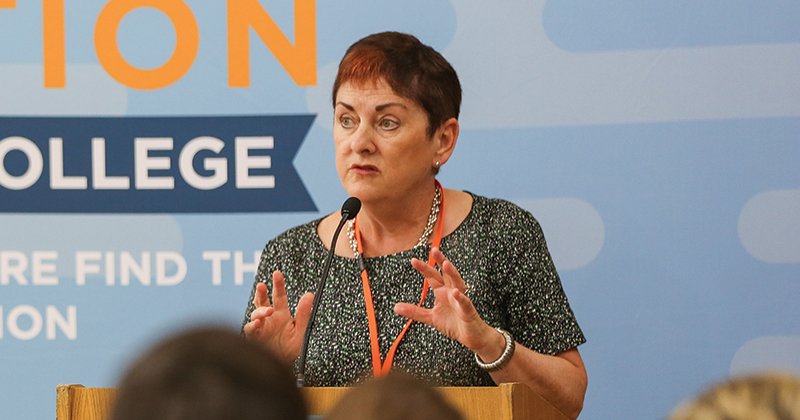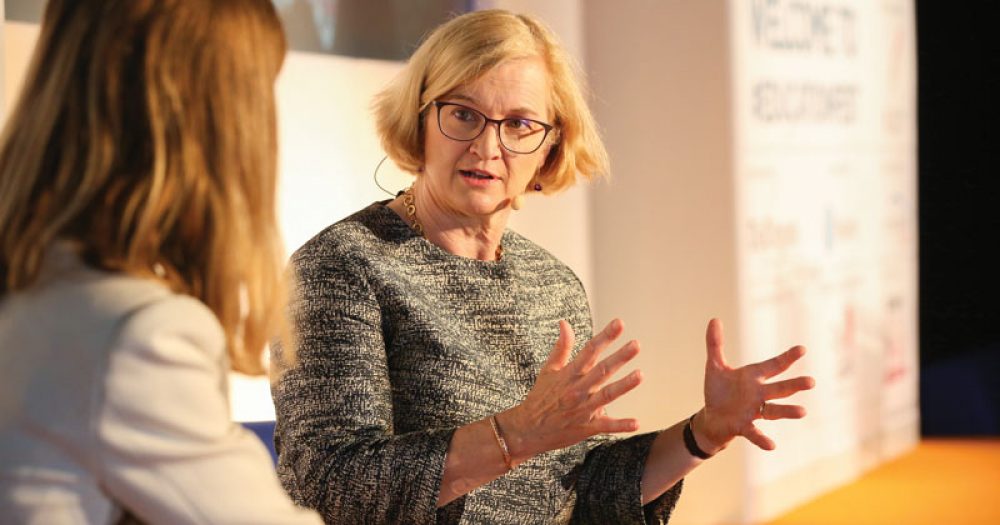Ofsted is now “at the limit” of what it can do with scarce resources, a senior official has admitted, after the government’s own spending watchdog warned of “significant challenges”.
Luke Tryl, Ofsted’s director of corporate strategy, said his organisation does not feel it should go “any further” in reducing the amount of time spent on inspections, as the head of the National Audit Office warned the government against inspecting schools on the cheap.
An investigation by the NAO found that Ofsted now spends 52 per cent less in real terms than it did in the year 2000, meaning it can give less assurance about schools’ effectiveness. Furthermore, having struggled to retain inspectors in recent years, it has missed more inspection targets.
The fact that Ofsted has been subject to constant cuts over more than a decade, and regular shifts in focus, speaks volumes
The report examined whether Ofsted’s approach to inspecting schools is providing value for money, and found that the inspectorate does not know if its inspections are raising standards in England’s schools.
Sir Amyas Morse, the head of the NAO, warned that although it is “making headway” against recent performance shortfalls, Ofsted needs “better information to be able to demonstrate that its inspection of schools represents value for money”.
“The fact that Ofsted has been subject to constant cuts over more than a decade, and regular shifts in focus, speaks volumes,” said Morse, who wants the Department for Education to be “mindful that cheap inspection is not necessarily better inspection”.
“To demonstrate its commitment, the department needs a clear vision for school inspection and to resource it accordingly.”
But Nick Gibb, the schools minister, defended the government’s approach to funding the inspectorate.
“Ofsted receives more than £40 million a year to provide a school inspection regime that is focused on the schools that need the most improvement,” he said.
“We have repeatedly made clear that we want to ensure accountability is proportionate, helps to ensure standards in our schools are high and does not distract high-performing schools from what matters most – teaching and providing an excellent education.”
Ofsted ‘doing better with less resource’
Tryl, a former adviser to education secretary Nicky Morgan, said that while Ofsted would “always calibrate” what it does to meet the funding levels set by central government, “it’s fair to say we are now at the limit of what we can do”.
“You will know that the level of assurance that we offer, if we’re doing a short inspection of a good primary school, that will often be a single inspector for a single day. And we do not feel we should go any further than that,” he said.
Ofsted’s inspection model has changed significantly in recent decades. At the turn of the millennium, a ‘good’ secondary school would have received a week-long visit from 16 subject specialists. A school in the same position now will get a one-day visit by two inspectors every three to four years.
“We think we are doing better with less resource,” said Tryl. “But we can’t pretend that we’re operating at the same level we were before.”
The report demonstrates the challenge “to us, but also for the department in deciding the future of inspections”.

His comments were echoed by Amanda Spielman, the chief inspector of schools, who warned that any increase either the number of inspections or time spent on inspection “will quite simply require greater funding”.
“Ofsted is only one lever in the school system, which is why it has proven difficult for the NAO to judge our impact and value for money,” she said. “As we have made clear to the NAO, judging ourselves against school outcomes would inevitably create perverse incentives. We exist to provide an objective account of the quality of the nation’s schools.
“The NAO’s conclusion that we cannot prove the value for money we represent is explicitly not the same as demonstrating that we do not provide value, particularly considering that the costs of our school inspection work represents just 0.1 per cent of the overall school budget. We are confident we compare well against other school inspectorates internationally, something the NAO did not look at.”
The NAO wants the DfE to work with Ofsted to review the extent of the independent assurance about the quality of schools that the inspectorate provides. The organisations should also “set out clearly and communicate the different roles of those involved in overseeing schools” to address confusion about Ofsted’s role.
Meanwhile, Ofsted should set out a plan for recruiting and retaining the inspectors it needs to undertake school inspections, review the effectiveness of its complaints process. It should also use its new performance measures to monitor and report publicly on progress against its new strategy, and make inspection reports more useful to parents.
Spielman said Ofsted is “already in the process” of addressing every one of the NAO’s recommendations.
Ofsted needs ‘root-and-branch reform’
Groups representing teachers and school leaders have reacted with dismay to the findings, and demanded action.
“Schools and parents alike will be concerned to read that the NAO has concluded that the level of independent assurance about schools’ effectiveness has reduced,” said Nick Brook, the deputy general secretary at the NAHT heads’ union. “Confidence in the quality and reliability of inspection is of paramount importance to all.”

Dr Mary Bousted, the joint general secretary of the National Education Union, said the report was “both vital and timely”, and called the revelation that Ofsted does not know whether its school inspections are having the intended impact as “devastating”.
“Ministers can’t ignore this report and the time for root-and-branch reform of Ofsted is now,” she said.
“It’s clear that Ofsted has struggled to meet inspection targets because of real-terms budget cuts and a shortfall in inspectors in recent years,” said Geoff Barton, the general secretary of school leaders’ union ASCL.
“We agree with the head of the NAO that cheaper inspection is not necessarily better inspection, and we support the recommendation for a review into whether Ofsted has the resources to do its job.”








Your thoughts